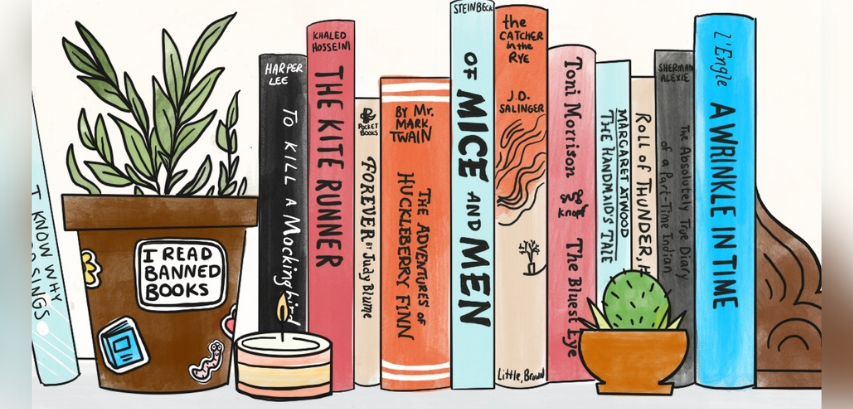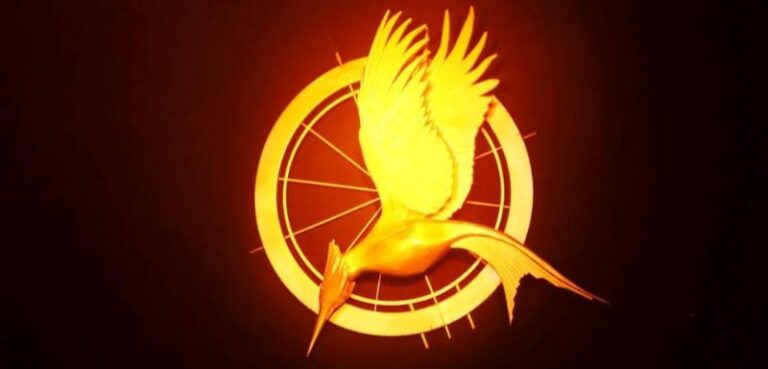The five titles that are on the Rapid City Area School Board of Education’s school district surplus list as books “to be destroyed” are the following: 185 copies of “How Beautiful We Were: A Novel” by Imbolo Mbue, 35 copies of “Fun Home: A Family Tragicomic” by Alison Bechdel, 75 copies of “The Perks of Being a Wallflower” by Stephen Chbosky, 30 copies of “Girl, Woman, Other: A Novel” by Bernardine Evaristo, and 30 copies of “The Circle” by Dave Eggers. Two of these five titles have been challenged as being inappropriate in other school districts across the country.
The Rapids City Journal reporter, Nathan Thompson, stated that RCAS Public Information Manager Caitlin Pierson said that the books were pulled from the reading list for English 12 classes.
“The building administrators and the Director of Teaching, Learning, and Innovation agreed on this decision, based on the content of the books,” she said in a brief statement. “Each year, some used books are either destroyed or sold on palettes.” Though the final decision has yet to be made, many are wondering why these books are being banned from high school seniors.
According to the book description of “How Beautiful We Were: A Novel,” this book is about a “fearless young woman from a small African village (who) starts a revolution against an American oil company.” This book dives deep into a fictional story about an African village that’s experiencing the death of its children due to the illegal operations of a nearby American oil company. Despite some violent scenes depicting the kidnapping of the oil company’s representatives, the book explores themes of a government or corporation suppressing underprivileged people and how they can fight back.
Though this book was listed on the New York Times list of the “10 Best Books of 2021” and also named on the best book lists of The Washington Post, Esquire, Good Housekeeping, and The Christian Science Monitor, this book might be banned.
The other books in question are inspirational stories with controversial narratives, a possible reason for their removal request.
“Girl, Woman, Other: A Novel” was published in 2019 by Hamish Hamilton. This fictitious novel follows 12 characters in the U.K. over several decades including narratives depicting the struggle of black women, a lesbian character and a gender nonbinary character, a teacher, an investment banker, and a cleaner. This book has also received multiple literary awards.
“The Circle” was published in 2013 by Knopf and was adapted into a film starring Tom Hanks and Emma Watson in 2017. This is a science fiction story of a woman who is hired to work for the world’s most powerful internet company that instates a surveillance society, reminiscent of George Orwell’s 1984.
The other two books which have been seen as controversial to many school boards are the coming-of-age story “The Perks of Being and Wildflower,” which has been challenged because of its depictions of drugs, alcohol, smoking, homosexuality, and offensive language, and the illustrated, comic-book styled memoir “Fun Home: A Family Tragicomic,” which has been challenged by conservative groups across the country for its depiction of drug use, sexual violence and anti-religious sentiments as their main concerns.
While I understand monitoring what children in schools are learning and reading, it’s beyond educators’ responsibilities to ban books (art) from school, especially for high school seniors. Removing mature books from the school library might not be the right answer, making students feel like their reading options are being censored.
Art is a huge part of expression in our nation’s culture and banning controversial narratives only bans these cultural issues from being talked about and explained in a controlled environment. The banning of these books could result in students feeling alienated because of their personal issues or choices. Teachers are given a huge responsibility of teaching and fostering the next generation of children. Being open and having that accessibility to help anyone, especially in high schools, who may already be exposed to or going through issues of identity or drug use could save a student’s life.
Having open conversation and communication is important, especially in English class, where students should be introduced to challenging narratives expounding upon real-life issues.
Where do we draw the line when books start being banned? And what are the criteria that make banning literature acceptable? The issue of banning books in school could be seen as a violation of freedom of speech. There are many narratives we can learn from, even if we don’t agree with its contents.
Banning books that present real-life issues to teenagers might lead to harmful consequences. What should the Rapid City Area School Board of Education do about these complaints? I don’t think there is an easy answer when dealing with hundreds of students and parents, but banning these books and completely removing them from school libraries doesn’t seem like the right answer either.


